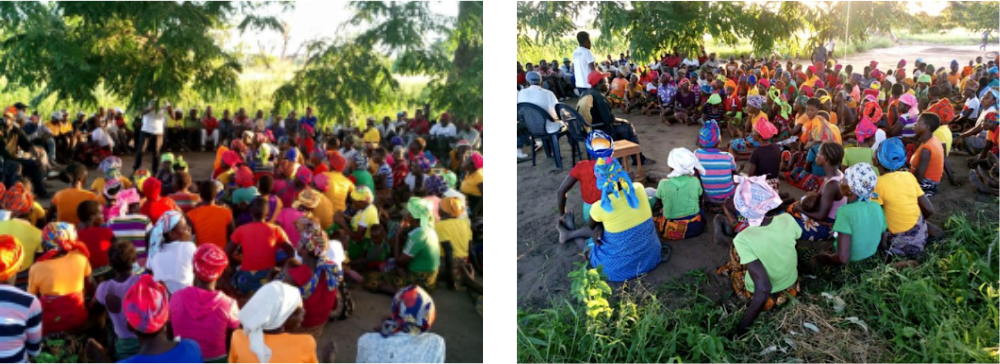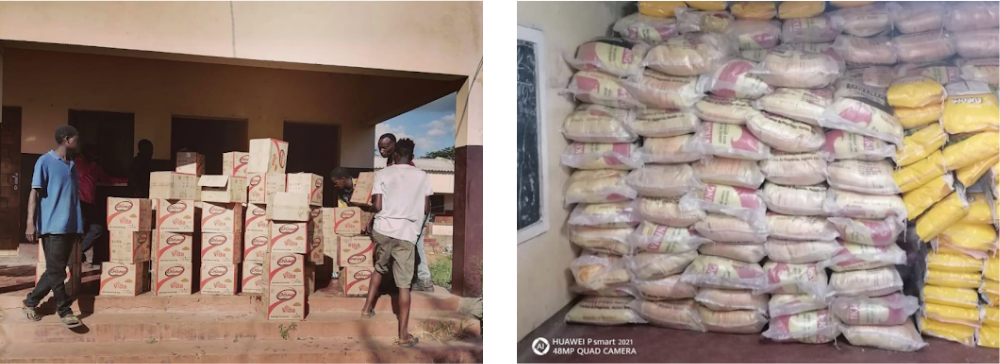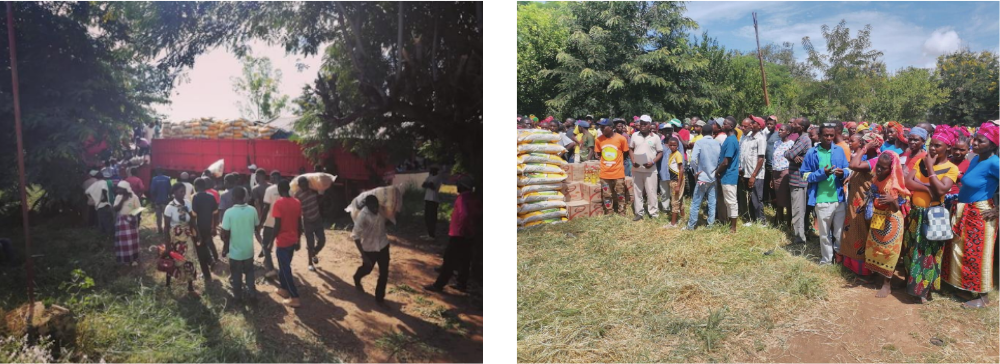26.09.2024
Partnering with a future-focused bank
Launched in January 2016, imagin has already reached more than a million customers. They are Spain’s …
)
We are always pleased to share the positive impact our projects are delivering. At Earthly, we believe high-quality carbon initiatives should do more than just capture and store carbon. They should also create lasting benefits for the people restoring and protecting ecosystems.
The latest update from our partner project undertaking native woodland restoration in Mozambique, is an example of this principle in action. In this initiative, carbon finance investments translates directly into food security, community empowerment, and ecological protection, preservation, and restoration.

Community members in Kukumuty gather in an open council to decide how to reinvest carbon revenues collectively.
is restoring degraded
woodland while strengthening local livelihoods. The initiative is combining native species planting, soil and fire management, and agroforestry systems to revive biodiversity and reduce pressure on natural forests.
So far, it has sequestered over 106,000 tonnes of CO₂, planted thousands of seedlings, and ensured strong community participation, with at least 50% female involvement. Beyond climate benefits, it supports sustainable livelihoods through honey, fruit, and livestock feed production.
The native woodland project operates on a unique principle: 60% of all carbon revenue is returned directly to participating communities. The allocation of this funding is determined collectively, through community councils where priorities are openly discussed and decided.
This structure ensures that investments are transparent and locally led, with resources directed toward the needs identified by the communities themselves.

Amid the hunger crisis in Kukumuty, rice and oil packages made possible by carbon financing are nourishing families and building resilience in Mozambique.
In 2024, the sale of
8,500 rPVCs
enabled participating villages to reinvest their carbon revenues into food security, which was a critical local priority.
During the annual hunger season (April - May), four villages,
Nhaumue, Daca, Maguenhe, and Mangunde
, chose to allocate their carbon dividend to the purchase and distribution of food. This decision directly addressed severe
, with the Kukumuty district classified between
Phase 3 (crisis) and Phase 4 (emergency)
levels of food insecurity.
The outcome was both immediate and substantial, with carbon finance helping to deliver essential supplies:
48,560 kilograms of rice
3,488 litres of cooking oil
1,679 families supported, reaching approximately 7,400 individuals
This support helped alleviate acute food insecurity in Kukumuty, ensuring thousands of families had access to staple goods during a time of crisis.
Each stage of the process, from procurement to final distribution, was carried out with community participation and oversight. For example, in Mangunde, over
560 households
received tailored support packages, consisting of
721 sacks of rice and 1,124 litres of oil
.
By involving the community at every step, accountability was upheld and carbon revenue was converted into practical, equitable support.

According to the UNEP and ILO, over 60 million people worldwide work in nature-based solutions projects. These community-led efforts safeguard ecosystems, improve nature and strengthen community livelihoods.
This project demonstrates how carbon markets can be structured around transparency, community leadership, and reinvestment. Rather than treating carbon as an abstract commodity, the project connects climate finance directly to tangible benefits for both people and nature.
Each verified carbon credit represents a unit of CO₂ avoided or stored
and
a contribution to improved food security, ecological restoration, community empowerment, and dignity for vulnerable populations.
This approach is firmly grounded in recognised
Nature-based Solutions (NbS) principles
:
Biodiversity gains:
restoring and protecting Miombo woodland while reducing deforestation pressures.
Community participation and equity:
ensuring decisions are made through open councils, with strong representation and accountability.
Measurable impact:
independently verified carbon benefits paired with transparent reporting of social outcomes.
Long-term resilience:
building food security, sustainable livelihoods, and ecological health that endure beyond project cycles.
As businesses seek credible and high-impact pathways to net zero, initiatives like the native woodland restoration in Mozambique highlight the importance of selecting carbon solutions that deliver more than carbon. They provide assurance that investments are contributing to systemic change, benefiting both people and planet.
At Earthly, we are proud to support and share this work, and we look forward to continuing to connect our partners with projects that redefine what climate finance can achieve.
to learn more about the
, or explore our full portfolio of nature-based solutions
.
Related articles